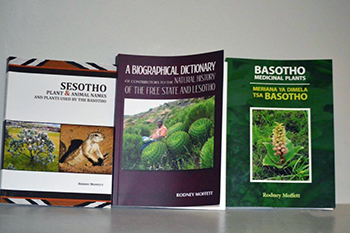Latest News Archive
Please select Category, Year, and then Month to display items

The University of the Free State (UFS) wishes to confirm that the following financial concessions have been made to enable students to register for the 2024 academic year:
- Students with confirmed NSFAS funding:
- Students with a confirmed National Student Financial Aid Scheme (NSFAS) funding allocation for 2024 with a debt of R20 000 and less may register fully without making any payments.
- First-time entering students (FTENS) with a confirmed NSFAS funding allocation for 2024 may register fully without any payments.
- Students with a confirmed NSFAS funding allocation for 2024 with a debt of R30 000 and less may register provisionally and pay the required fees* for provisional registration.
- South African self-paying (NON-NSFAS) students:
- SA students with a debt of up to R500 may register fully without making any payments.
- SA students with a debt of up to R30 000 may register provisionally and pay the required fees* for provisional registration.
- FTENS not on UFS funded list:
- Students who are not on the funded list but report that they have been approved on their portal must contact our
 Financial Aid Offices urgently so that the university can escalate to NSFAS.
Financial Aid Offices urgently so that the university can escalate to NSFAS.
The university will have continuous engagement with the National Financial Aid Scheme (NSFAS) to resolve outstanding matters. The university’s Financial Working Group (FWG) will meet regularly to determine how it can best assist students taking into consideration the financial constraints of the university.
Prof Moffett’s third book provides comprehensive guide to Basotho medicinal plants
2017-07-26

Prof Rodney Moffett’s three books documenting Basotho
plants, animals, and the history of the Free State and Lesotho.
Photo: Thabo Kessah
Prof Rodney Moffett has recently published his third book, Basotho Medicinal Plants – Meriana ya Dimela Tsa Basotho. This latest offering deals only with medicinal uses and is based on the data from his first book, Sesotho Plant and Animal Names and Plants Used by the Basotho.
“The latest book came about after a Sesotho language advisor in the Free State Department of Education suggested that there was a need for the medicinal uses of plants by the Basotho to be documented in the vernacular. In a situation where there is an almost total lack of scientific literature in the vernacular, the greatest value of this book therefore, is that it provides a comprehensive guide to the medicinal uses of plants in Sesotho,” said Prof Moffett, Honorary Research Associate in the Department of Plant Sciences on the Qwaqwa Campus.
Book lists names of plants in Sesotho
“It comprises two parts. Part one lists the medicinal categories and plants used, and part two lists the medicinal uses arranged according to the Sesotho names of the plants. It is easy to read, as the information is presented alphabetically with the Sesotho name first, followed by the scientific name and usage thereof. Because a plant often has more than one Sesotho name, the scientific name is included to identify it.”
Prof Chris Nhlapo, Deputy Vice-Chancellor of the Cape Peninsula University of Technology, and Prof Ntsamaeeng Moteetee from the University of Johannesburg are impressed with the book, respectively saying that it assists in documenting the deep indigenous knowledge of the “proud tradition of the Basotho Nation” and it is “an important contribution to the documentation of medicinal plant uses”.
The title of Prof Moffet’s second book was A Biographical Dictionary of Contributors to the Natural History of the Free State and Lesotho.
Prof Moffett was honoured with a Lifetime Researcher Award during the Academic and Research Awards on the Qwaqwa Campus in November.